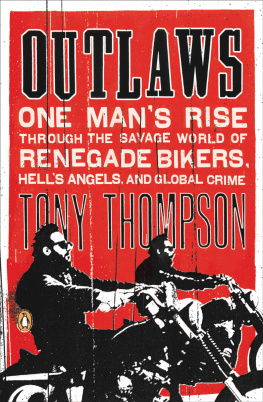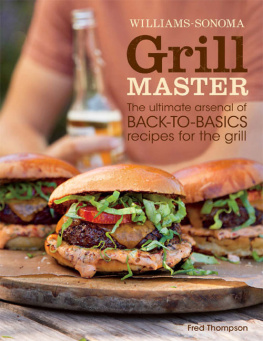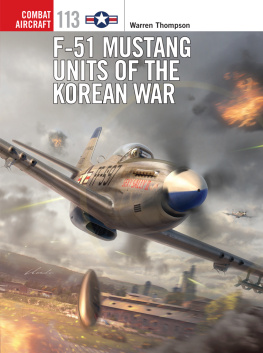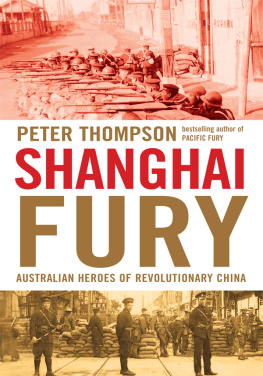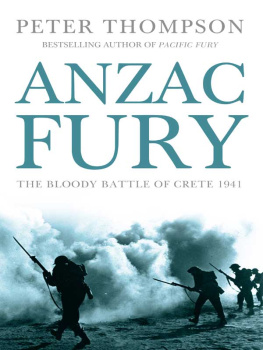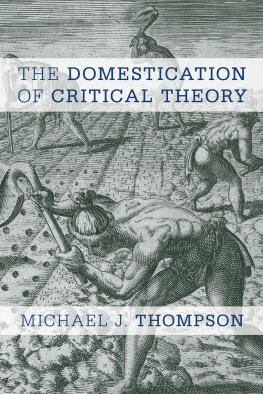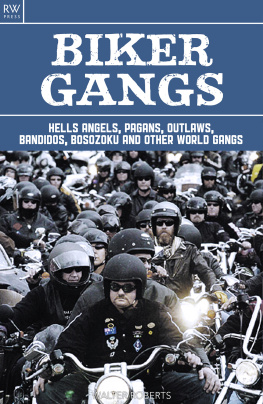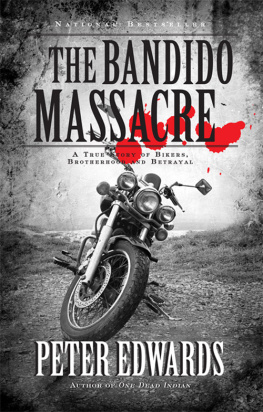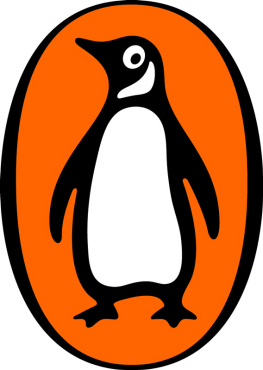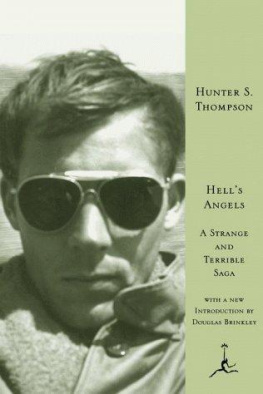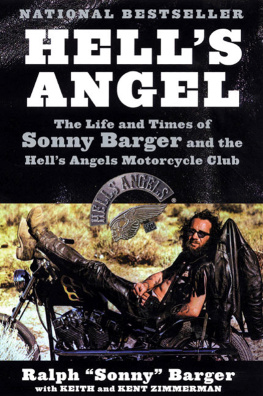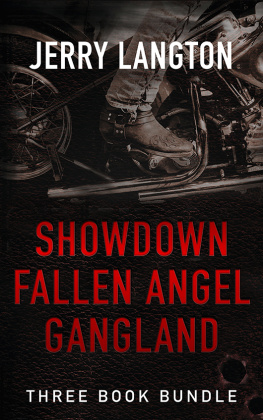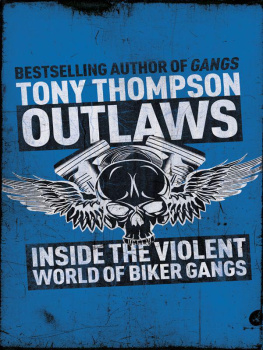PENGUIN BOOKS
OUTLAWS
TONY THOMPSON is widely regarded as one of Britains top true-crime writers. He has twice been nominated for the prestigious Crime Writers Association Gold Dagger for Non-Fiction, winning the coveted title for his book The Infiltrators. He is the former crime correspondent for the Observer and appears regularly on both television and radio as an expert on matters of crime. He lives in London.
PENGUIN BOOKS
Published by the Penguin Group
Penguin Group (USA) Inc., 375 Hudson Street,
New York, New York 10014, USA

USA | Canada | UK | Ireland | Australia New Zealand | India | South Africa | China
Penguin Books Ltd, Registered Offices: 80 Strand, London WC2R 0RL, England
For more information about the Penguin Group visit penguin.com
First published in Great Britain by Hodder & Stoughton 2011
Published in Penguin Books 2013
Copyright Tony Thompson, 2011
All rights reserved. No part of this product may be reproduced, scanned, or distributed in any printed or electronic form without permission. Please do not participate in or encourage piracy of copyrighted materials in violation of the authors rights. Purchase only authorized editions.
LIBRARY OF CONGRESS CATALOGING-IN-PUBLICATION DATA
Thompson, Tony, 1965
Outlaws : one mans rise through the savage world of renegade bikers, Hells Angels, and global crime / Tony Thompson.
pages cm
Includes index.
ISBN 978-1-101-61366-5
1. Motorcycle gangsGreat Britain. 2. Motorcycle clubsGreat Britain. 3. CriminalsGreat Britain. 4. Gang membersGreat Britain. I. Title.
HV6439.G7T564 2013
364.106'60941dc23 2013005526
For Harriet
God Forgives, Outlaws Dont
OUTLAWS MC MOTTOO
A one percenter is the one of a hundred of us who has given up on society and the politicians one-way law. This is why we look repulsive. We are saying we dont want to be like you or look like you, so stay out of our face.
Look at your brother standing next to you and ask yourself if you would give him half of what you have in your pocket or half of what you have to eat. If a citizen hits your brother will you be on him without asking him why? There is no why. Your brother isnt always right but he is always your brother! Its one in all in. If you dont think this way then walk away because you are a citizen and dont belong with us.
We are Outlaws and members will follow the Outlaws way or get out. All members are your brothers and your family. You will not steal your brothers possessions, money, woman, class or his humor. If you do, your brother will do you.
OUTLAWS MC CREED
CONTENTS
PREFACE
I n early April 2009, Daniel Snake Dog Boone broke the code of silence he had honored since his late teens and agreed to talk to me about his life in an outlaw motorcycle club.
To most people, such clubs are nothing more than an innocent throwback to the sixties, populated by paunchy men with scruffy beards and battered leather jackets, who love to ride their motorcycles and enjoy a good party. The code of silence says different, and members are left in little doubt about the penalties for breaching it. Three can keep a secret if two are dead, is a common saying among the Hells Angels, while their rivals, the Outlaws, simply state: Snitches are a dying breed.
Eager to keep the general public in the dark about what really goes on, the major international clubsthe Angels, the Outlaws and the Bandidosspend an extraordinary amount of time and energy cultivating a positive public image. They deliver toys to children at Christmas, raise money for worthy charities, and are the driving force behind several mainstream biker rallies. The clubs also file regular lawsuits, citing alleged incidents of police persecution and harassment that they claim are simply due to their desire to live a nonconformist lifestyle. Such harassment is, they insist, wholly undeserved.
Boone knew better. In the course of twenty-three years, he had seen the small back-patch club he had joined in his late teens evolve into something utterly unrecognizable. Slowly but surely, his club turned into a gangbecoming part of an international biker brand steeped in criminality, that put him on the front line of a vicious global conflict that has cost thousands of lives in dozens of countries.
I had written about the criminal activities of motorcycle clubs many times over the years and had come to believe that I knew a fair amount about them. As Boone began to relate his story, it struck me that, in reality, I knew almost nothing. The sheer scale of his operations, the astonishing level of complexity of the networks involved, the depths of depravity and the backdrop of extraordinary, casual violence around which his life revolved simply took my breath away.
I knew the bikers had started out as idealistic rebels, gotten involved in low-level drug dealing and prostitution and then expanded into mainstream criminality. I also knew that the pursuit of profit had ultimately led the clubs to wage war on one another, first in America then on new battlefronts in Canada, Australia, Scandinavia, Germany, Ireland, Spain and Turkey not to mention much of central Europe. What I was unaware of was just how those wars had affected the bikers themselves and fundamentally changed the very nature of what it meant to ride around with a patch on your back.
In his early days with the club, Boone had loved to ride his motorcycle purely for the hell of it, heading off whenever and wherever the mood took him. By the time he came to leave, it was simply too dangerous for him to ride anywhere unless he was part of a much larger group of bikers escorted by several security cars at the front and rear.
Under orders to remain armed at all timeshis black 9 mm semi-automatic pistol was rarely out of reachBoone increasingly felt as though he were living in a military compound. Even if he was just popping out for cigarettes, he could never leave his fortified clubhouse without checking the CCTV cameras to make sure there was no ambush waiting or that his vehicle hadnt been booby-trapped.
Depending on the alert status issued by the clubs high command, there were times when he was unable to contact his family for days or even weeks at a time. Regardless of the security situation, he was forbidden to speak to them about any of his club activities or duties, all of which had to take preference over family birthdays, anniversaries and other special occasions. Virtually every aspect of Boones life was governed by a code of conduct and a series of rules, the most crucial of which were printed in a compact booklet that commanded as much respect as the Holy Bible. Aside from a few minor variations, every club in the world operates under a similar set of rules.
For a long time, it was a life Boone would not have traded for anything. He snorted his way through a mountain of drugs and sank endless gallons of beer. He indulged in threesomes and foursomes and gang bangs by the score. He was shot, stabbed twice and involved in more fights than he could remember. He evaded car bombs, snipers and samurai sword-wielding would-be assassins and somehow lived to tell the tale.
What I liked most about that tale was that, throughout his time with the club, Boone seemed to have an extraordinary knack for being in the right place at the right time. Whether he was inadvertently setting off the brutal Great Nordic Biker War during a visit to Denmark, under siege in Canada, visiting the site of Australias most notorious biker massacre or nearly being shot at point-blank range in a Florida clubhouse after unwittingly insulting the clubs psychotic international president, Boone had truly seen it all.

